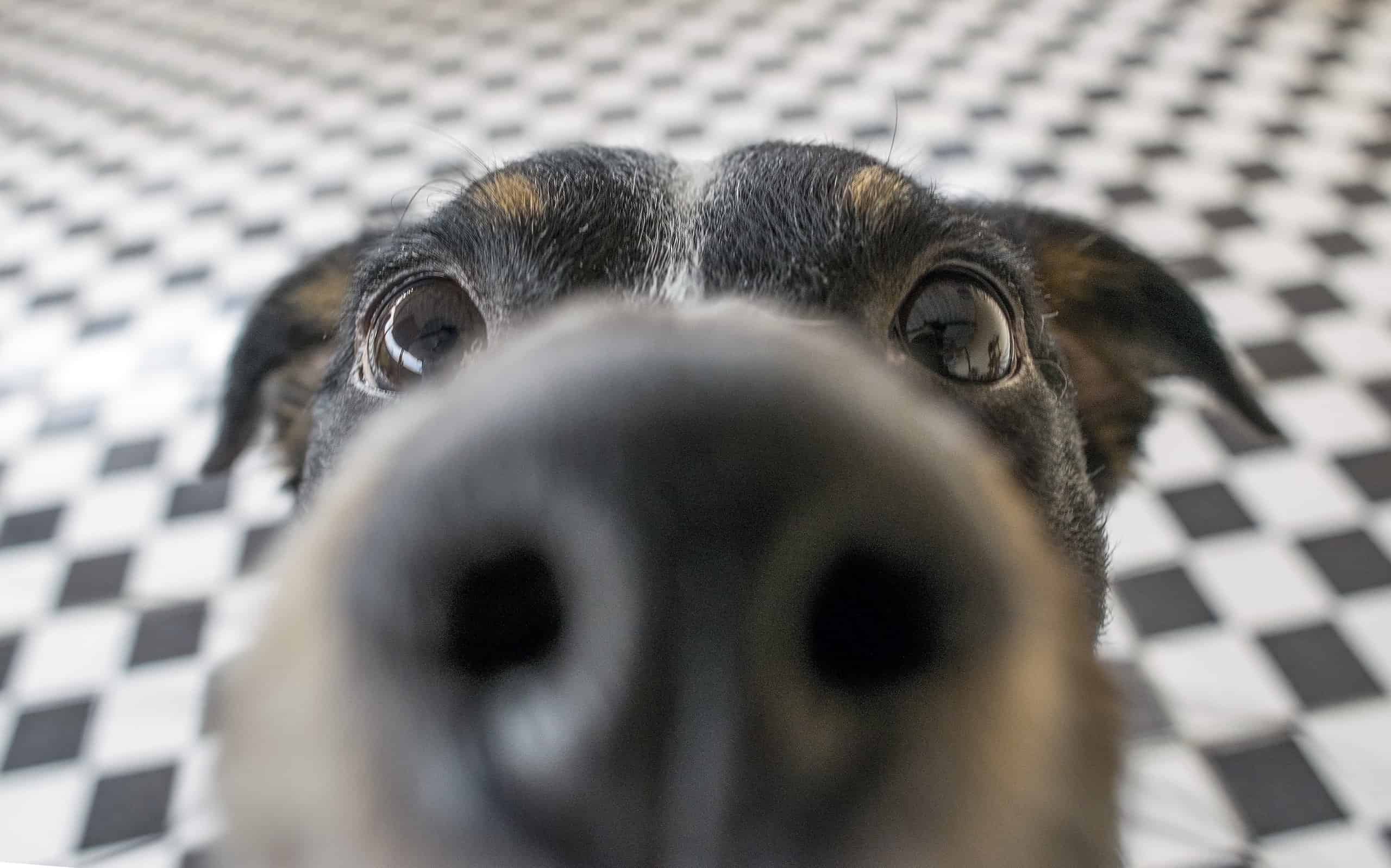As many of you know, dogs have powerful noses. So strong that some scents that might be tolerable or even pleasant to humans are downright unbearable to dogs. Dogs actually hate some smells!
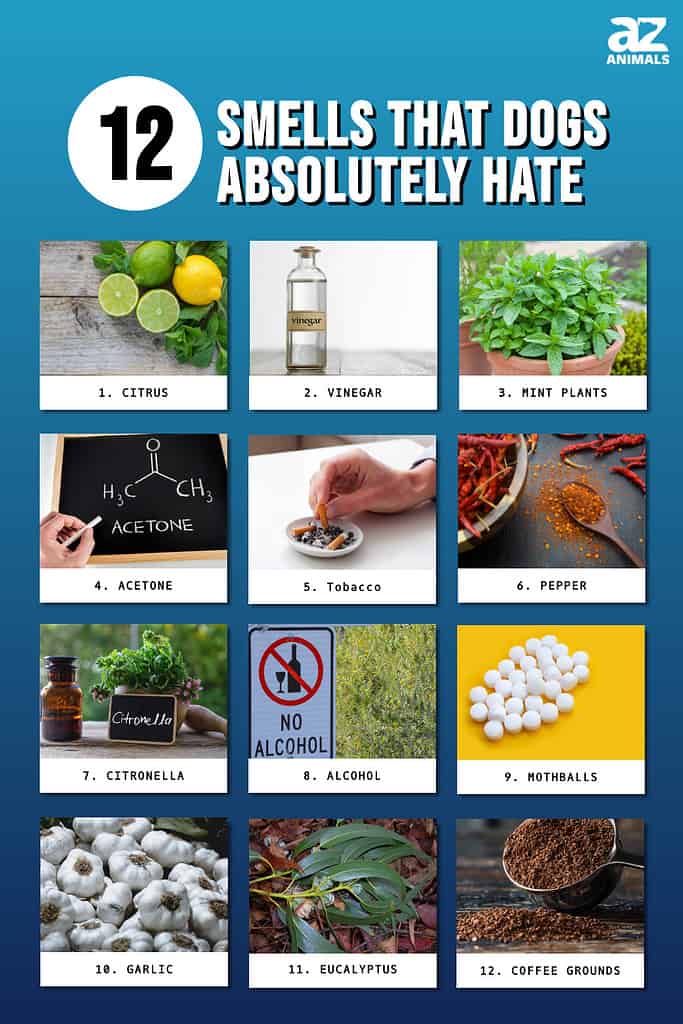
These smells can either be mildly unappealing to the point where your dog simply turns up their nose, or smell so bad that they avoid the area entirely. You might find that you and your dog might share the same hate for certain smells, such as the harsh smell of pepper or the burning sensation of acetone. Some of these smells can also be dangerous for dogs to inhale over a long period of time. This makes it essential to choose smells that are safe for your dog if you want to use them as a repellent or scent around the house.
So do you want to know what smells your dog hates? Read on to discover them!
How Strong Is a Dog’s Sense of Smell?
Compared to humans, a dog has a 10,000 to 100,000 more acute sense of smell than ours. Our canine companions also have approximately 225 to 300 million olfactory receptors. Humans only have around 6 to 10 million. This shows just how advanced and heightened a dog’s sense of smell is. Their olfactory system allows them to detect a plethora of smells and odors. This speaks for itself in proving just how strong your canine companion’s nose is.
Dogs’ nose is not only good for sniffing out their favorite snack. It also plays a role in how they sense and locate things in their environment. Dogs perceive most of their environment by using their heightened sense of smell. Their sense of smell is so advanced that they even have a vomeronasal organ on the roof of their mouths that enables them to sense things they cannot see. This includes chemical signals such as pheromones.
So, when your dog smells the usual smells around the house, they can smell and perceive these scents much better than we can. This also explains why scents that are strong to us are downright overpowering to your dog.
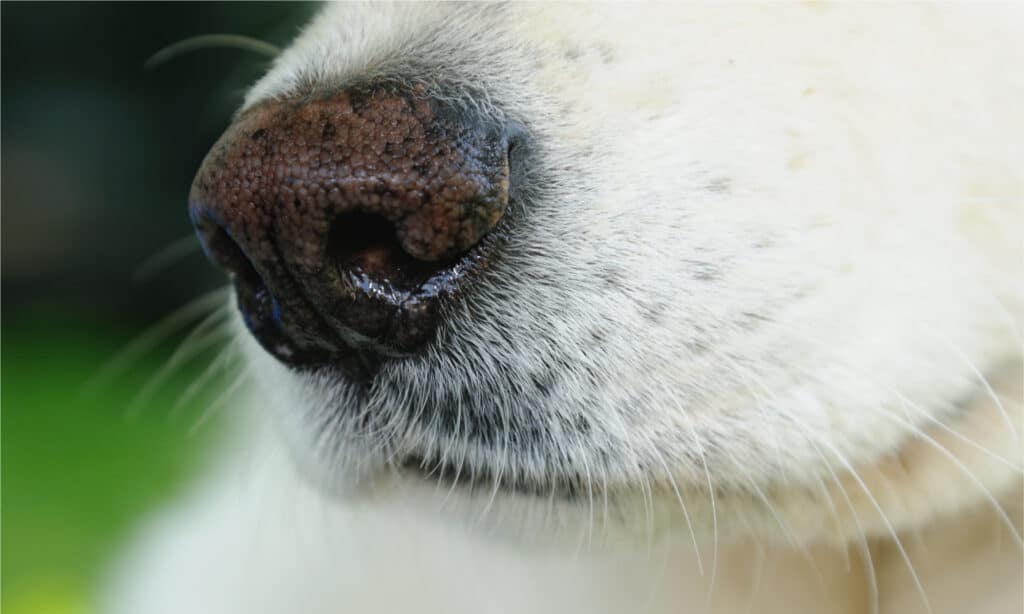
Compared to humans, a dog has a 10,000 to 100,000 more acute sense of smell than ours.
©anetapics/Shutterstock.com
Smells That Dogs Hate
Whether you are trying to avoid using scents in your home that your dog hates or you want a smell that can repel your dog from entering certain areas, here are the 12 smells that dogs absolutely hate.
1. Citrus

Citrus may smell great to you – but your dog hates it.
©Viktory Panchenko/Shutterstock.com
If you love the smell of citrus and enjoy citrus-smelling candles or air fresheners, you might be disheartened to find out that dogs do not share the same joy. The fresh lemony or orange scent may make your home smell fresh and welcoming, but many dogs find it irritating to their noses. The smell of citrus itself doesn’t seem harmful to dogs, but it can be dangerous if your dog ingests citrus fruits. If you have a dog that will eat almost anything that seems remotely edible, leaving lemon or orange peels around or as a repellent might not be the best choice.
2. Vinegar

Vinegar smells bad to dogs – but it isn’t toxic.
©focal point/Shutterstock.com
Vinegar is famous for its excellent odor-neutralizing properties, and this fermented liquid is in many households. The type of vinegar that dogs seem to dislike is white spirit vinegar. Many dogs will turn their noses up to the unpleasant vinegary smell, and even the most curious dogs won’t dare to lick it. You might use vinegar to clean areas where your dog has peed or neutralize any odors around the house. While the smell of vinegar itself is unpleasant for dogs, vinegar is not toxic to our canine companions. However, vinegar is not something you want your dog often ingest, since it may cause gastrointestinal discomfort.
3. Mint Plants
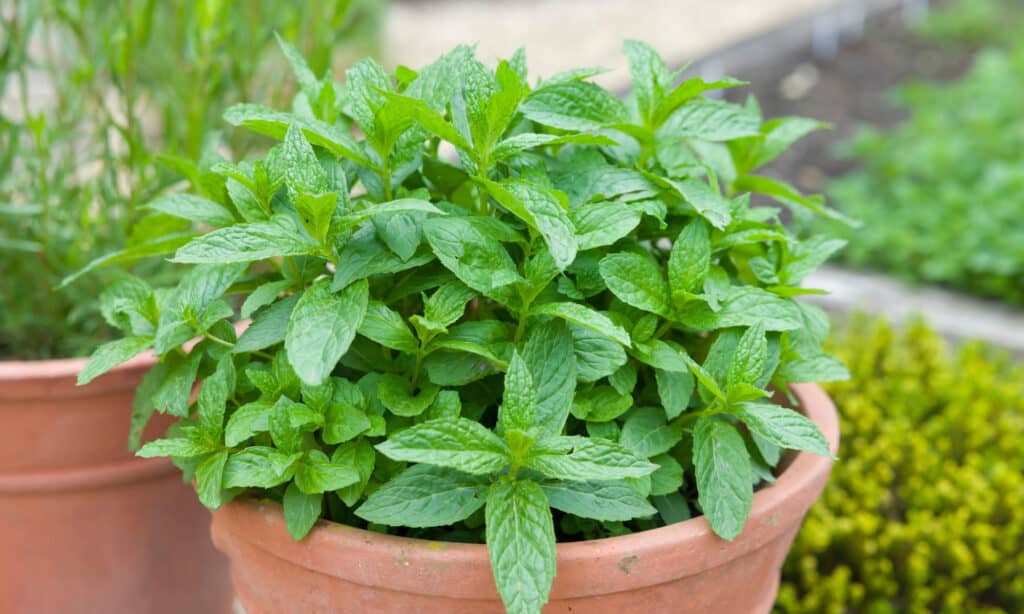
Although used in some dental hygiene treats – too much mint is too much for your dog’s nose.
©Paul Maguire/Shutterstock.com
Even though mint is used as a flavor enhancer for some dental hygiene dog treats, the smell might not be appealing to your canine companion as it is to you. The mint herb can be pretty intense and has a smell many dogs seem to dislike. So while the scent is linked to a minty fresh breath, it probably isn’t something your dog likes to smell. Some dogs prefer to avoid spending too much time in garden areas where the smell of mint plants is strong. Although it can’t be considered a good canine repellent, it might still be worth trying to use the plant in areas your dog shouldn’t be in. The taste and smell of artificial mint, like peppermint, in certain dog treats are more tolerable, and some might even like it.
4. Acetone

Nobody likes the smell of acetone – including your dog.
Image: Beyond This, Shutterstock
©Beyond This/Shutterstock.com
A very strong scent that dogs understandably hate is acetone. This harsh chemical is common in many nail polish removers, but it is too strong for your dog’s sensitive nose. A few whiffs of acetone can have your dog sneezing and trying to leave the area of the smell. This is why allowing your dog to smell acetone is a bad idea. If your dog was to breathe in a large amount of acetone or small amounts over a long period, it could even damage its nose, eyes, and lungs. Removing your nail polish in another room or a well-ventilated area away from your dog is a good idea. Since acetone can be dangerous for dogs to smell and ingest, we advise against using it as a repellent.
5. Tobacco

Not only do dogs hate the smell of tobacco – they also suffer from the effects of secondhand smoke.
Image: Ground Picture, Shutterstock
©Ground Picture/Shutterstock.com
Aside from being a harmful substance for your dog, they do not like the smell of tobacco. This can be both the plant’s natural form or from cigarettes and other smoking devices. The smell is unappealing to dogs regardless of the source. Smoking tobacco indoors or near your dog allows the smell and nicotine to stick to different areas of the house and even your dog’s fur. In addition, these particles can be ingested by your dog when they groom themselves, putting your dog at risk of inhaling and ingesting harmful chemicals. The plant should not be used as a repellent for dogs either. This is because it leads to gastrointestinal problems, and the nicotine found in the smoking products and plant form is toxic to dogs.
6. Pepper

Black and cayenne pepper can irritate your dog’s nose and throat.
©Thanatip S./Shutterstock.com
The popular seasoning worldwide might make your food taste good, but it doesn’t smell very good to your dog. The spicy aroma of black and cayenne pepper can irritate your dog’s nose and throat. It can also cause them to sneeze and wheeze if inhaling some fine peppery particles.
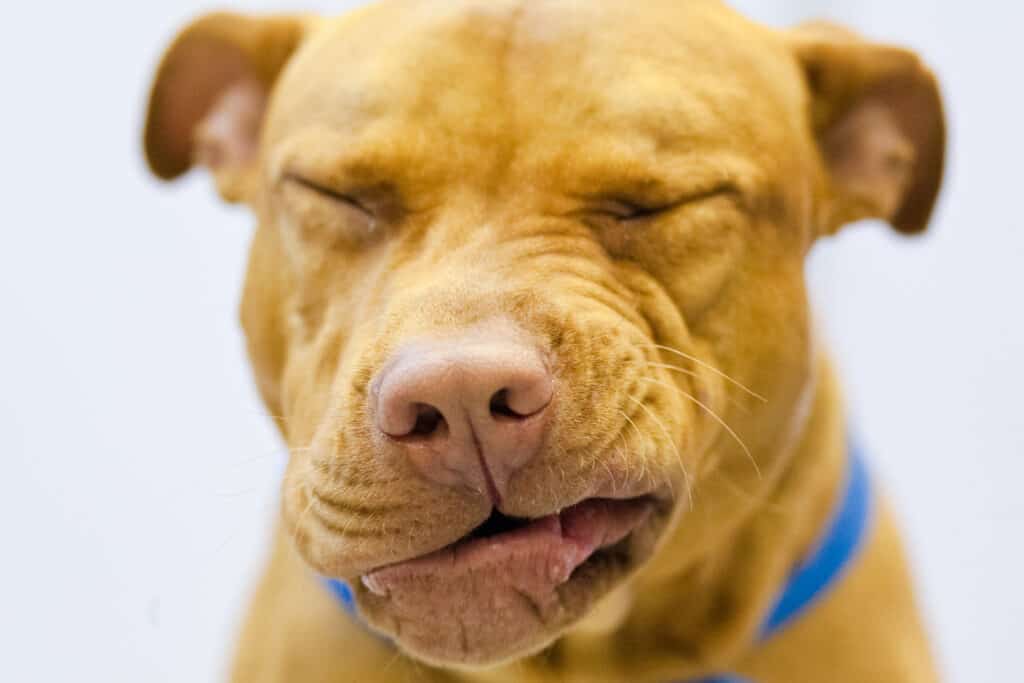
The spicy aroma of black and cayenne pepper can cause dogs to sneeze and wheeze if inhaling some fine peppery particles.
©memorable9/Shutterstock.com
7. Citronella

Citronella is toxic and a dermis and gastrointestinal irritant to dogs.
©rawf8/Shutterstock.com
Citronella is a smell that repels those pesky bugs. It is very common in topical sprays, lotions, or candles as a repellent. However, insects are not the only thing that citronella repels, as many dogs do not like the smell. In addition, Citronella is toxic and a dermis and gastrointestinal irritant to dogs.
8. Alcohol
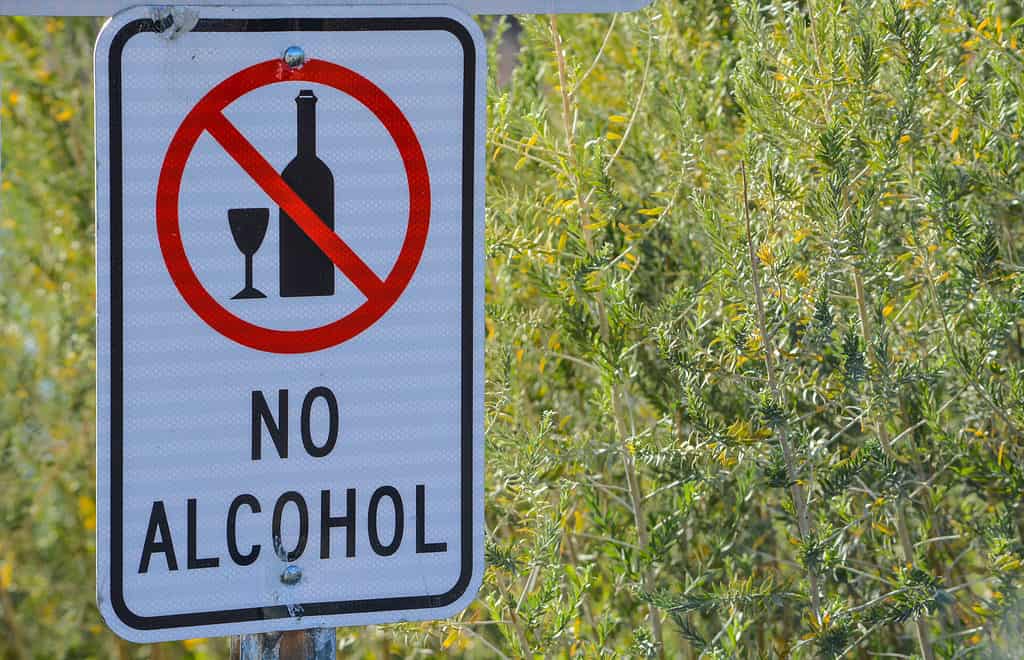
Alcohol that can hurt your dog includes rubbing alcohol.
©Norm Lane/Shutterstock.com
Dogs hate the smell of high percentage ethanol, and understandably so. The scent will cause your dog’s nose and throat to burn while being dangerous for dogs to ingest. Alcohol is an irritant for dogs, and ingesting can lead to alcohol poisoning and gastrointestinal issues in dogs. Dogs dislike higher concentrations of alcohol and can’t bear to be in an area that has been cleaned with rubbing alcohol. However, you should not use alcohol to repel dogs, since it irritates their eyes, nose, skin, and mouth while causing ethanol poisoning in dogs. Dogs should never ingest alcohol, nor should you use cotton buds dipped in alcohol to repel them if the dog could ingest it
9. Mothballs

Naphthalene in mothballs can cause serious health issues in dogs.
©Bowonpat Sakaew/Shutterstock.com
The nostalgic smell of your grandparent’s house might be due to mothballs. They were typically used back in the day when storing clothes, linen, and other cloth materials to prevent them from getting damaged. The smell is not only bad for moths but dogs too. Either paradichlorobenzene or naphthalene causes the specific smell of mothballs. These are two harmful chemicals that have a pungent odor. The issue is that these seemingly harmless balls are actually bad for your dog to inhale. Even though many dogs will avoid mothballs, they should not smell them for a long time. Naphthalene can cause health issues in dogs, and it is also a probable carcinogen.
10. Garlic

Garlic contains thiosulfate, which is toxic to dogs.
©Carl.Salisbury/Shutterstock.com
The potent garlic smell is disliked by dogs while also being a toxic food for dogs. A diluted solution of garlic juice and water has been used as a natural repellent for dogs, but there is a concern if your dog was to ingest the solution. This is because garlic contains thiosulfate, which is toxic to dogs. The smell of garlic can also be strong enough to irritate their respiratory systems.
11. Eucalyptus

Eucalyptus can cause irritation to your dog’s nasal passages and burning in their eyes.
Eucalyptus is a popular essential oil that is commonly used to open your airways or perhaps to freshen up your home. The smell might not seem bad to us, but it is too strong for your canine companion. This essential oil should be limited in a home where dogs are, as it can cause irritation to their nasal passages and even cause a burning sensation in their eyes. You can, however, use a solution of eucalyptus oil and water in a spray bottle as a natural repellent, in your garden, or on certain parts of the house where your dog should not be.
12. Coffee Grounds
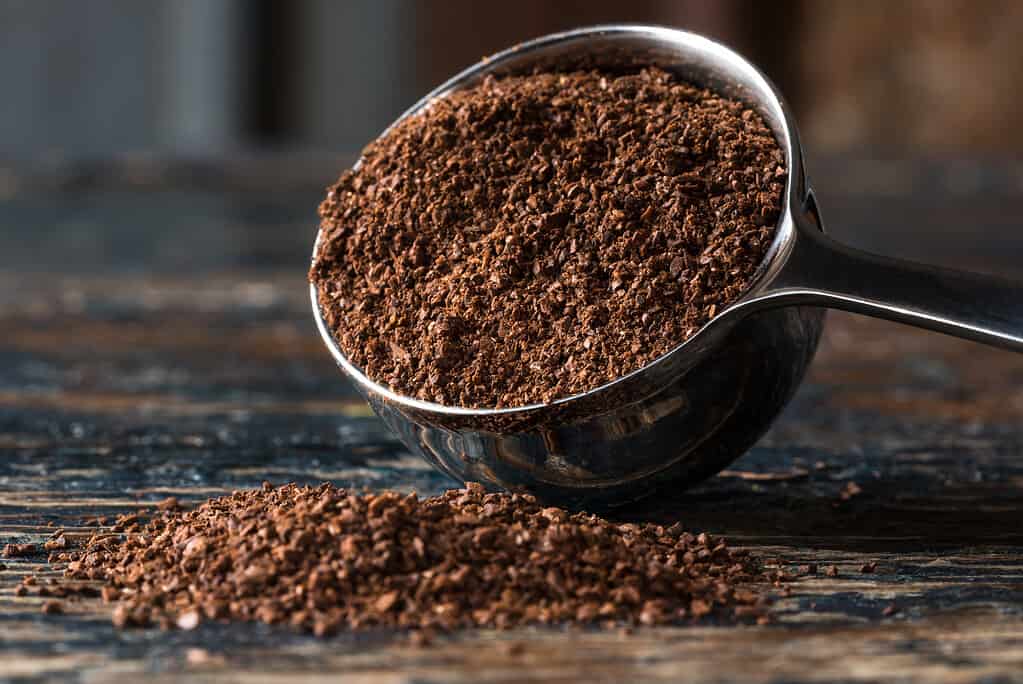
The smell of coffee is unpleasant to your dog and the caffeine in it is harmful if digested.
©iStock.com/Michelle Lee Photography
While the aroma of coffee is something many coffee lovers look forward to, it is not something your dog enjoys. Many dogs are repelled by the smell of coffee, especially if it is strong. This is why coffee grounds can be used as a repellent for dogs if you want to keep them away from parts of the garden or from chewing your furniture. If you do choose to leave coffee grounds around as a canine repellent, be sure to use decaffeinated coffee in case your dog ingests it. Caffeine is not good for dogs and should never be given to them.
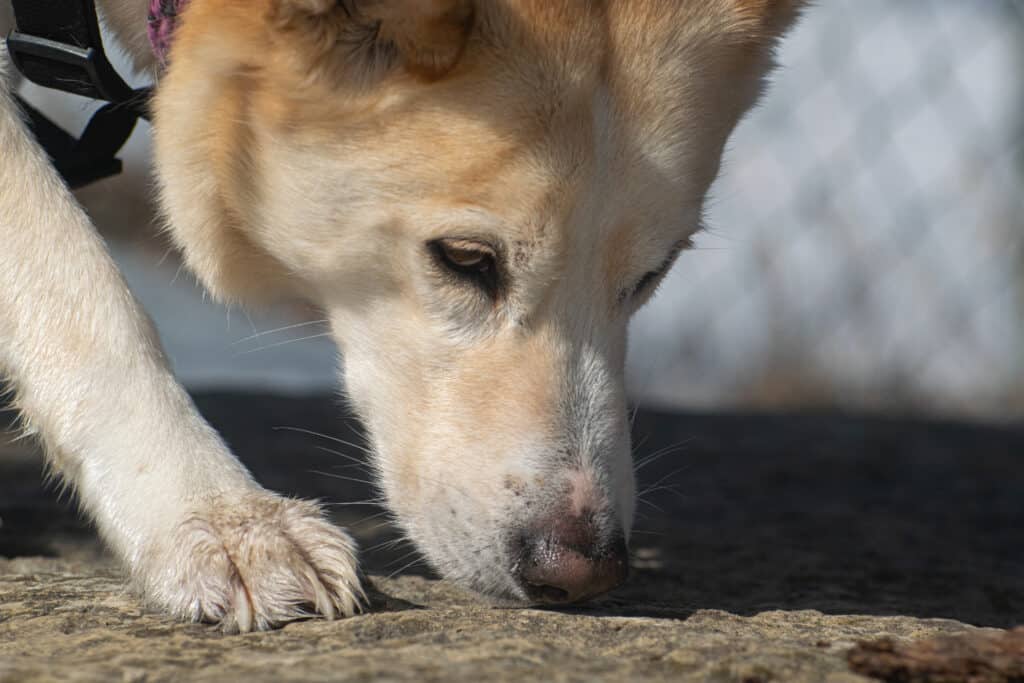
If you choose to leave coffee grounds around as a canine repellent, be sure to use decaffeinated coffee in case your dog ingests it, as caffeine is not good for dogs.
©Klod/Shutterstock.com
Summary of 12 Smells That Dogs Absolutely Hate
Here is a list of smells that will cause discomfort for dogs. Most of these will cause some degree of harm if ingested – from mild gastric distress to poisoning.
| # | Smell | Harmful if Ingested? |
|---|---|---|
| 1 | Citrus | Yes |
| 2 | Vinegar | Yes |
| 3 | Mint Plants | No |
| 4 | Acetone | Yes |
| 5 | Tobacco | Yes |
| 6 | Pepper | No |
| 7 | Citronella | Yes |
| 8 | Alcohol | Yes |
| 9 | Mothballs | Yes |
| 10 | Garlic | Yes |
| 11 | Eucalyptus | Yes |
| 12 | Coffee Grounds | Yes |
Ready to discover the top 10 cutest dog breeds in the entire world?
How about the fastest dogs, the largest dogs and those that are -- quite frankly -- just the kindest dogs on the planet? Each day, AZ Animals sends out lists just like this to our thousands of email subscribers. And the best part? It's FREE. Join today by entering your email below.
Thank you for reading! Have some feedback for us? Contact the AZ Animals editorial team.

